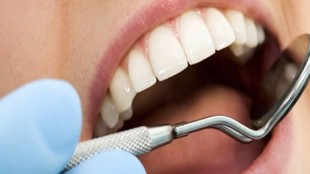Gingival Diseases

Adolescence (Teen ages)
When girls reach adolescence, secretion of female hormones, that is namely progesterone and estrogen, would increase. This hormone level increase would intensify the reaction of gums to the toxins contained in bacterial plaque. Gums would get redder, more sensitive, swollen and probably easily bleed during chewing or brushing.
Menstrual Periods
Some women do not experience any difference in their oral tissues during these periods. However, some would encounter with swollen gingiva, aphtha, canker, swollen salivary glands or gum bleeding days before the start of their periods. In such cases, your dentist could recommend special cleaning processes and products, gingival treatments and topical anesthetics to provide relief.
Contraceptive Pills
The most frequently problems observed in women on “the pill” are reddening and swelling in gingiva. Hormones contained in these pills would cause an increase in the progesterone levels of your system. Please tell your dentist if you are using contraceptive pills. Thus, your dentist would be enabled to find the actual root cause of the gingival disorders you suffer and recommend you the medications (such as antibiotics) which would mitigate the side effects of such pills.
Pregnancy
The hormone levels of your body significantly increase during pregnancy. Gingivitis is particularly observed between the 2nd and 8th months of pregnancy and this disease can cause red, swollen and hurting gums which can easily bleed during brushing. This sensitivity is an overreaction to the bacterial plaque, caused by the highly elevated levels of progesterone. Your dentist might ask you to brush your teeth more frequently during the 2nd trimester and early stages of the 3rd trimester of your pregnancy to avoid such problem.
Menopause
Following physical changes can be observed in your mouth during menopause: a sense of burning; variations in taste (salty, hot, sour); decrease in saliva secretion, causing a dry mouth and oversensitivity towards hot/cold food & beverages. Many medications might have tooth related side effects, which may also cause mouth dryness. Saliva stimulating drugs can be prescribed to prevent this problem.
PRECAUTIONS
Methods to avoid periodontal diseases:
- Brush your teeth twice a day and clean the adjacent teeth surfaces daily with dental floss or interdental brush.
- If you need further help for preventing bacteria plaque and gingivitis, your dentist may recommend you an antibiotic mouth wash.
- Visit your dentist regularly for routine checks and professional dental cleaning implementations.
- Follow a balanced diet for your health and restrict snacks between meals.
* The areas referred to with “gingival diseases” are: teeth; bone tissue surrounding the teeth; tissue enabling teeth to connect to the bone (professionally called “periodontium”) and the gingiva covering the bone surrounding the teeth. So, as you can understand, GINGIVAL DISEASES are those pertaining to the above defined system.



COMMENTS
POST A COMMENT